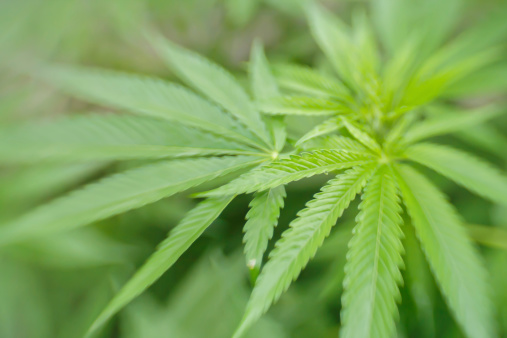Companies and Brands
Will Marijuana Use Become Legal Nationwide?
Published:
Last Updated:

Although the Supremes did not say as much in their 5-4 decision on marriage, the fact is that the court was simply putting its imprimatur on a practice that was already legal in more than two-thirds of the states. And while the analogy with legal cannabis is hard to miss, there are some significant differences.
The United Nations Office on Drugs and Crime released its 2015 world report on Friday and the data are not entirely friendly to the cause of legalization:
Evidence suggests that more drug users are suffering from cannabis use disorders, and that cannabis may be becoming more harmful, as reflected in the high proportion of persons seeking first-time treatment in several regions of the world.
ALSO READ: Colorado Ranch Is Nation’s First Marijuana-Friendly Resort
The UN report is based on 2013 data — the most recent available — and indicates, for example, that the United States leads the world in the quantity of herbal marijuana seized by drug enforcement agencies in 2013. The United States also leads by a factor of two in the eradication of outdoor cannabis plants (more than 4 million) and by a factor of nearly four in the eradication of indoor cannabis plants.
The UN also noted a reported increase in cannabis use among high school students from 24.7% in 2012 to 25.8% in 2013, and cited data showing an increasing trend in cannabis-related treatments in the past decade, along with more cannabis-related hospital admissions.
Another concern raised by the UN is the increasing potency of cannabis:
Advances in cannabis plant cultivation techniques and the use of genetically selected strains have led to an increase in the number of cannabis harvests, as well as in the yield and potency of cannabis. The potency of cannabis, commonly measured in terms of the concentration of THC (Δ9-tetrahydrocannabinol, the main psychoactive ingredient in cannabis), has been increasing in many markets over the past decade, leading to growing concern about the potential of cannabis to cause serious health problems.
The point here is that as more states take steps to decriminalize or legalize marijuana, opponents have some serious arguments against legalization. In the case of same-sex marriage, the main argument (and its variations) was that such marriages were not traditional.
ALSO READ: Few Banks, Credit Cards Want Marijuana Industry Business
In Canada, the country’s Supreme Court recently ruled that medical marijuana patients may now lawfully consume cannabis in all forms. The Minister of Health was not amused:
Frankly, I’m outraged by the Supreme Court. Let’s remember, there’s only one authority in Canada that has the authority and the expertise to make a drug into a medicine and that’s Health Canada. Marijuana has never gone through the regulatory approval process at Health Canada, which of course, requires a rigorous safety review and clinical trials with scientific evidence. We [now] have this message that normalizes a drug where there is no clear clinical evidence that it is, quote-unquote, a medicine.
In the United States, the states of Nebraska and Oklahoma have filed suit against Colorado to stop the state from allowing commercial growing and distribution of marijuana. Because the case involves a dispute between two states it is heard directly by the U.S. Supreme Court. In early May, the court asked the U.S. Solicitor General to file a brief on the administration’s view of the case, and that should be filed soon.
Colorado is on shaky ground. The challenge has little to do with marijuana per se. Nebraska and Oklahoma are simply asking the Supremes to follow a well-established constitutional principle: when state and federal laws are in conflict, federal law wins. And that does not mean that the administration gets to choose which laws it enforces.
A report from Pew Research in April showed support for marijuana legalization is rising (it is now 53%, up from 32% in 2005) while opposition is falling (now 44%, down from 60% 10 years ago). Nearly 70% of millennials support legalization while only 50% of baby boomers do. Whether or not marijuana is legalized in the United States is not a question of if, but when. The public health and legal arguments against legalization are likely to lead to more skirmishes and battles, but the war over legal marijuana is finished, and it is just a matter of time before politicians get the message.
ALSO READ: The 10 Largest Marijuana Companies
After two decades of reviewing financial products I haven’t seen anything like this. Credit card companies are at war, handing out free rewards and benefits to win the best customers.
A good cash back card can be worth thousands of dollars a year in free money, not to mention other perks like travel, insurance, and access to fancy lounges.
Our top pick today pays up to 5% cash back, a $200 bonus on top, and $0 annual fee. Click here to apply before they stop offering rewards this generous.
Flywheel Publishing has partnered with CardRatings for our coverage of credit card products. Flywheel Publishing and CardRatings may receive a commission from card issuers.
Thank you for reading! Have some feedback for us?
Contact the 24/7 Wall St. editorial team.